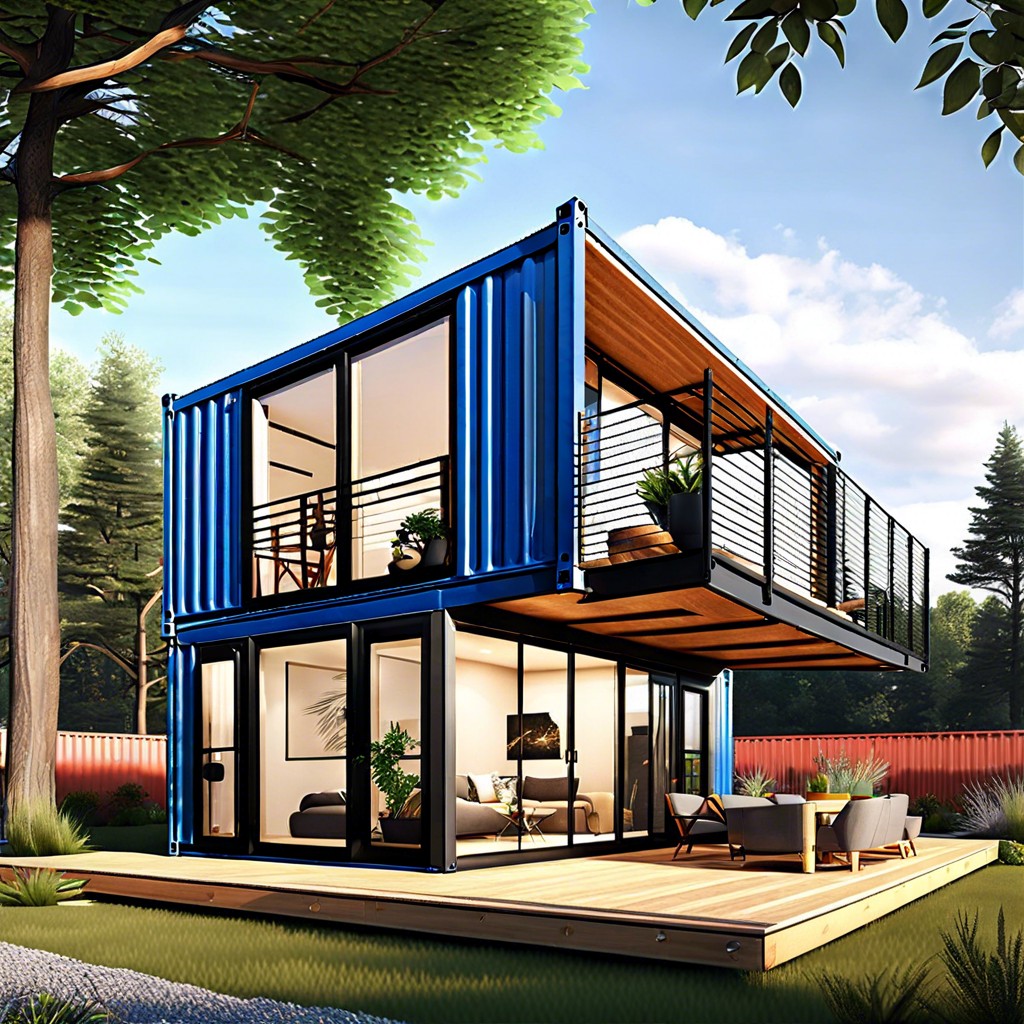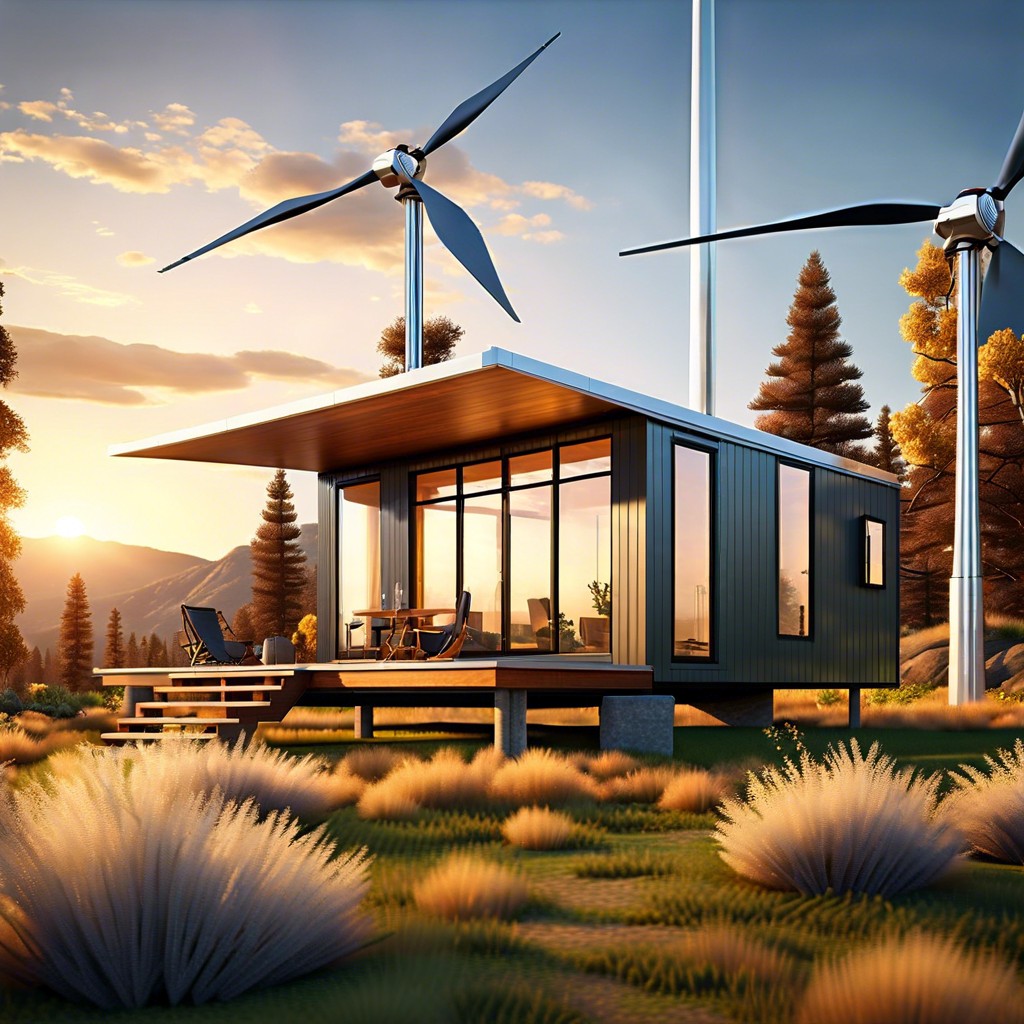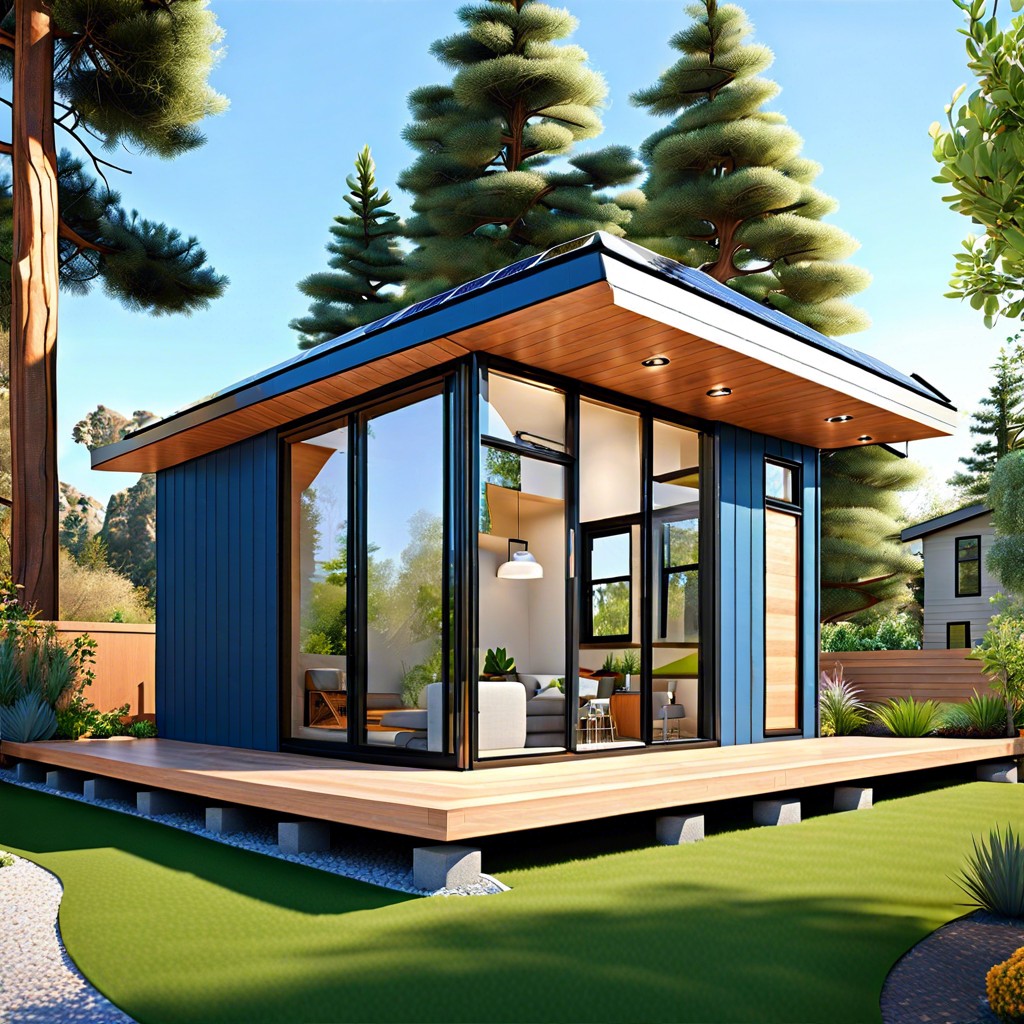Last updated on
Learn how to harness the sun’s power to heat your home efficiently with these clever passive solar heating tips.
Feeling chilly but tired of sky-high heating bills? Well, buckle up, because we’re diving into the quirky world of passive solar heating with a twist!
I’ve scoured the internet and found the usual suspects—like south-facing windows and thermal mass walls. Yawn. Let’s crank up the creativity and discover fresh, wacky, and wonderfully unique ideas to warm your home, naturally.
Ready to turn your house into a sun-soaked paradise with a splash of pizzazz? Let’s get this solar party started!
Trombe Walls
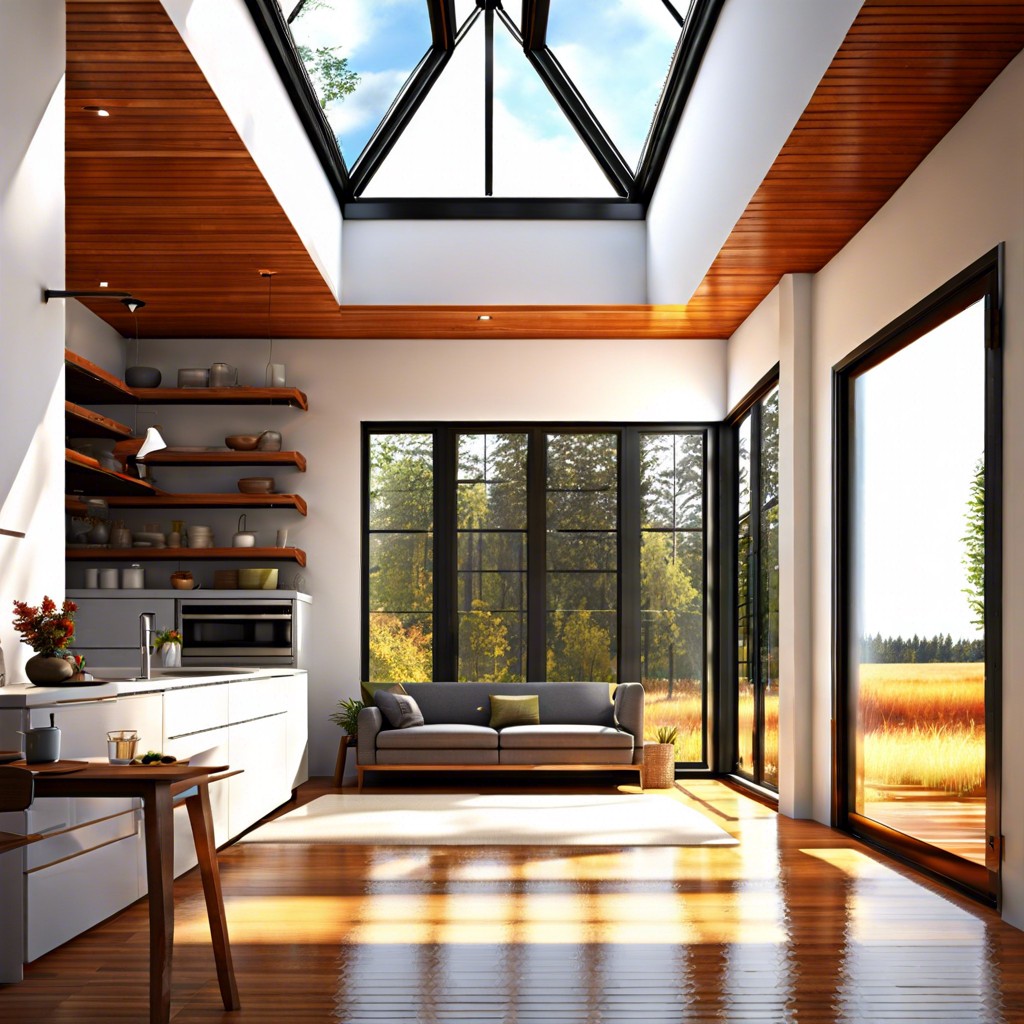
Trombe walls are thick walls that absorb solar heat during the day and release it at night, helping to heat a home more efficiently. They act as thermal storage, regulating indoor temperatures without electricity.
Solar Chimneys
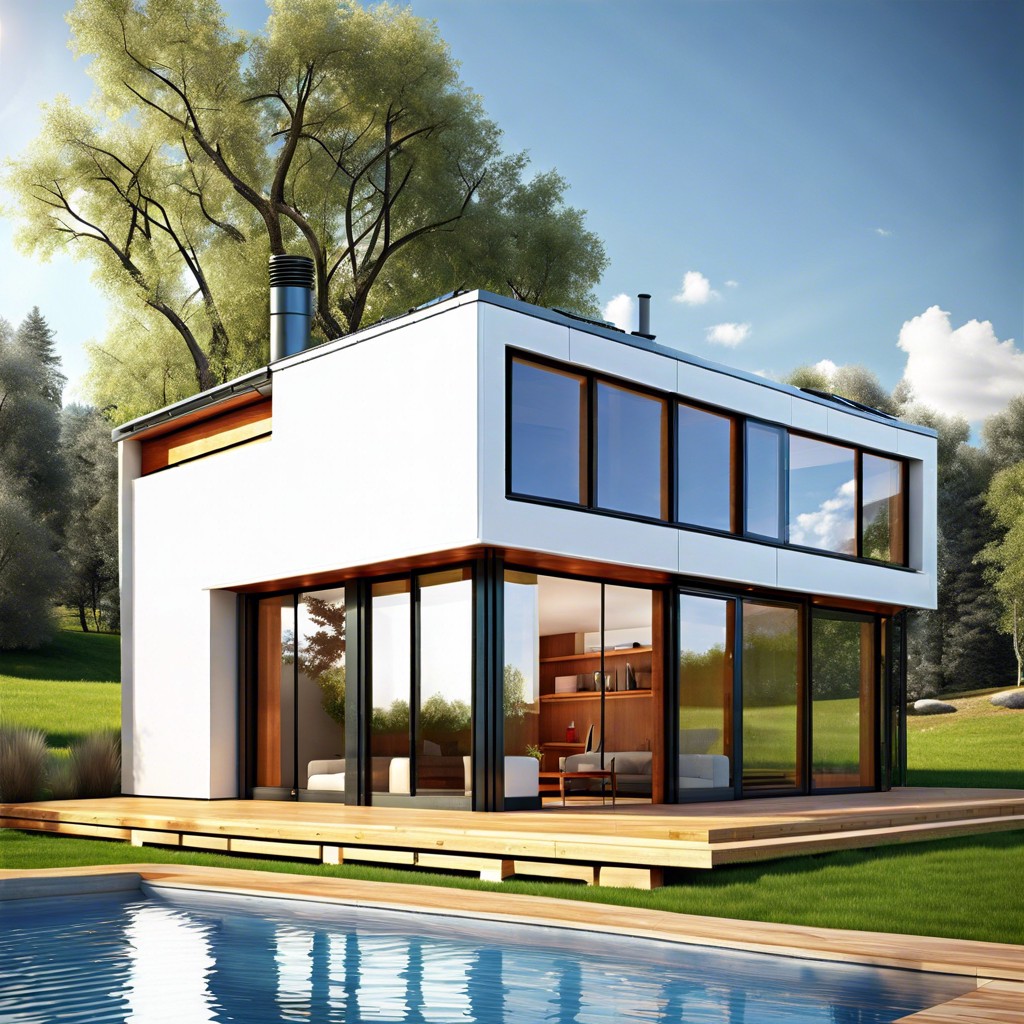
Solar chimneys utilize the sun’s heat to create a draft for natural ventilation inside buildings. They work as passive cooling systems by removing hot air and maintaining a comfortable indoor environment.
Thermal Mass Water Tubes

Thermal mass water tubes help store and distribute heat efficiently within a home by utilizing water as a heat-retaining medium. This simple yet effective method aids in regulating indoor temperatures naturally.
Sunspaces/solariums
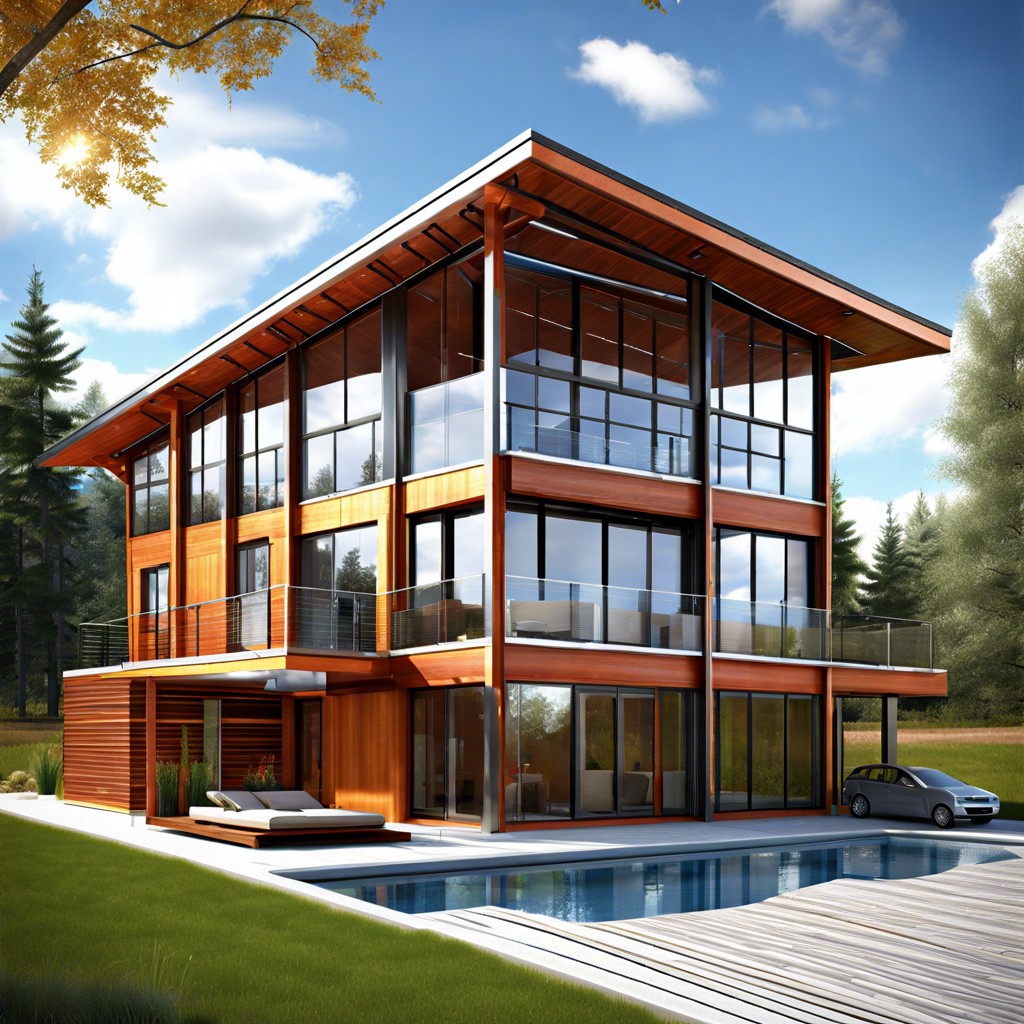
Sunspaces/solariums attached to homes maximize passive solar heating by trapping and circulating solar heat throughout the living space seamlessly. They provide a cozy nook to bask in the sunlight while naturally heating the connected rooms for extra warmth.
Phase-change Materials
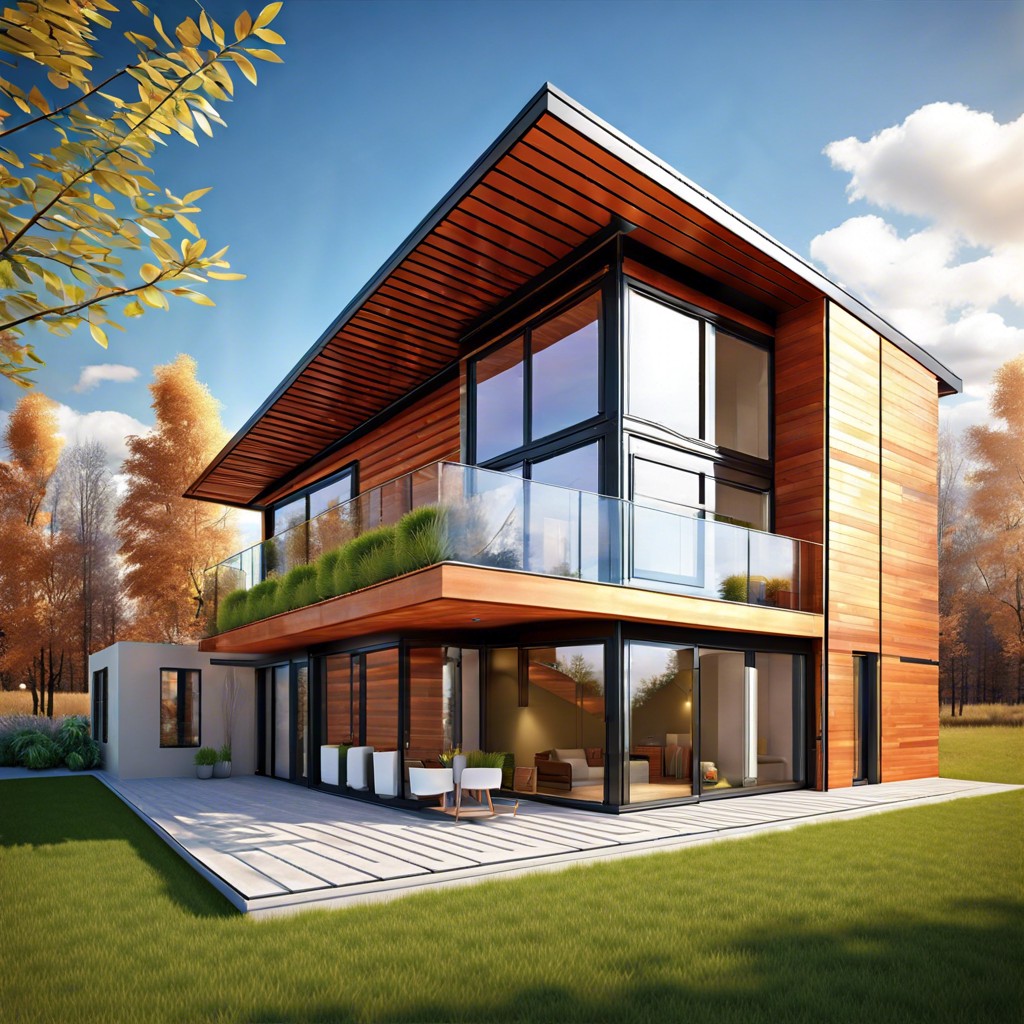
Phase-change materials harness the sun’s heat during the day and release it at night in passive solar homes. These materials efficiently store and redistribute thermal energy.
Skylight Heat Traps
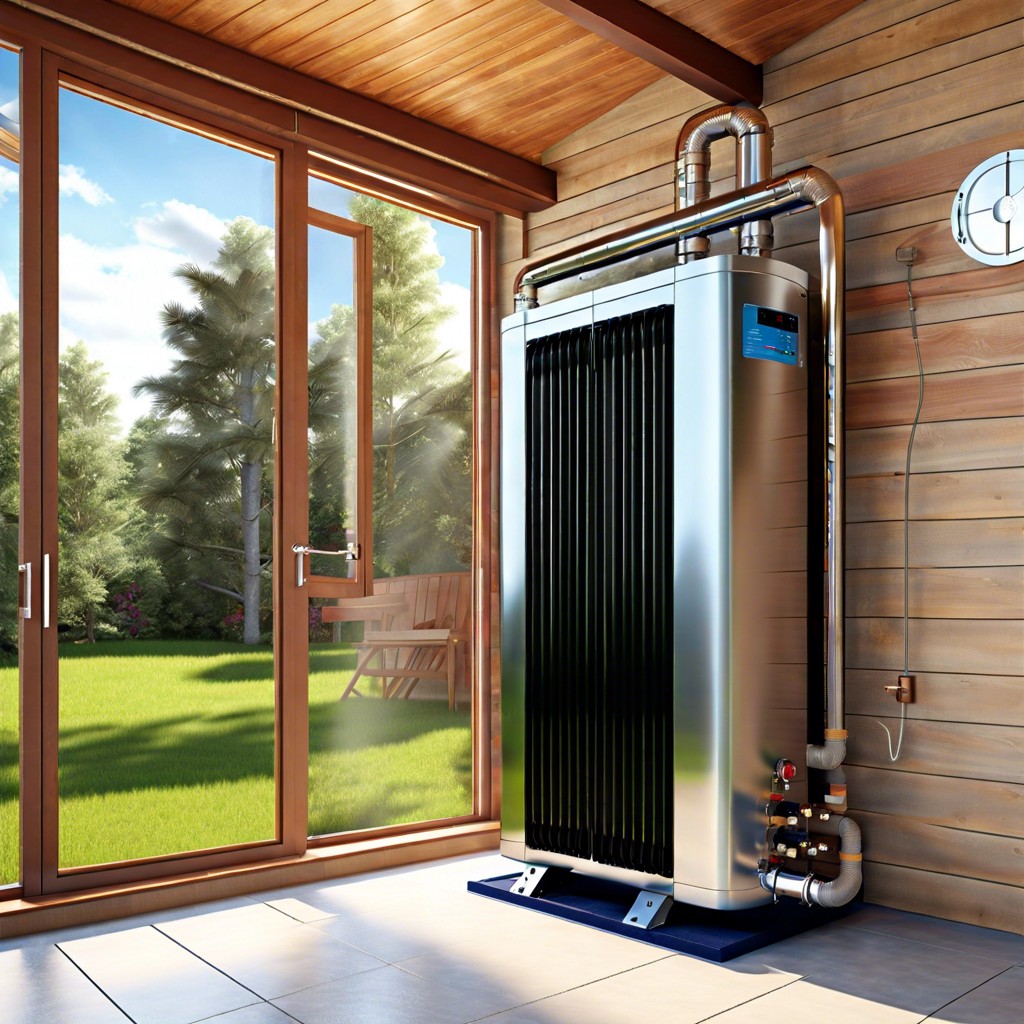
Skylight heat traps efficiently capture and distribute solar heat gain within a space. They are a clever design feature that maximizes passive solar heating benefits.
Direct Gain Windows
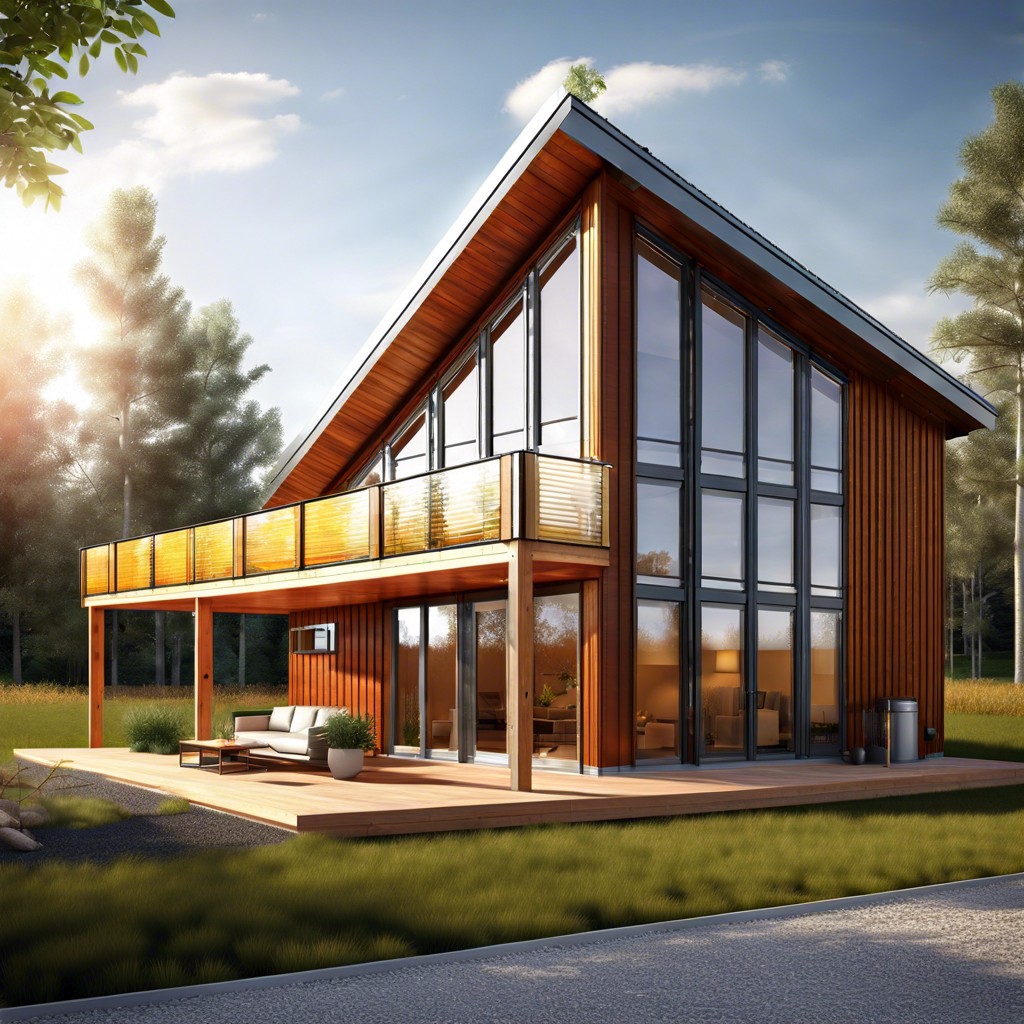
Direct gain windows allow sunlight to enter a house and convert it into heat, increasing indoor temperatures passively. This design feature maximizes solar heat gain during the day, reducing the need for additional heating sources.
Solar Heat Shelves
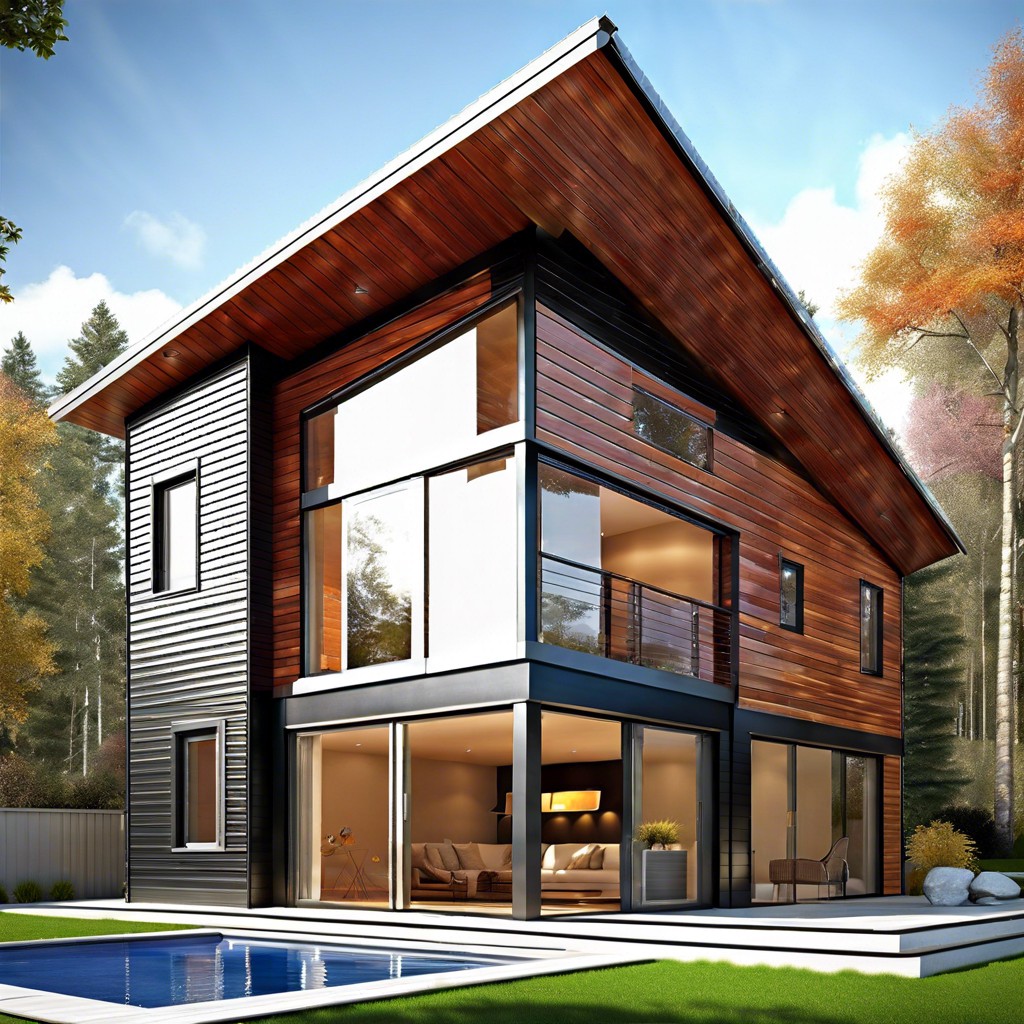
Solar heat shelves provide a passive way to capture and distribute solar heat through a home. Placed strategically near windows, they help regulate indoor temperature by trapping and circulating warm air.
Roof Ponds
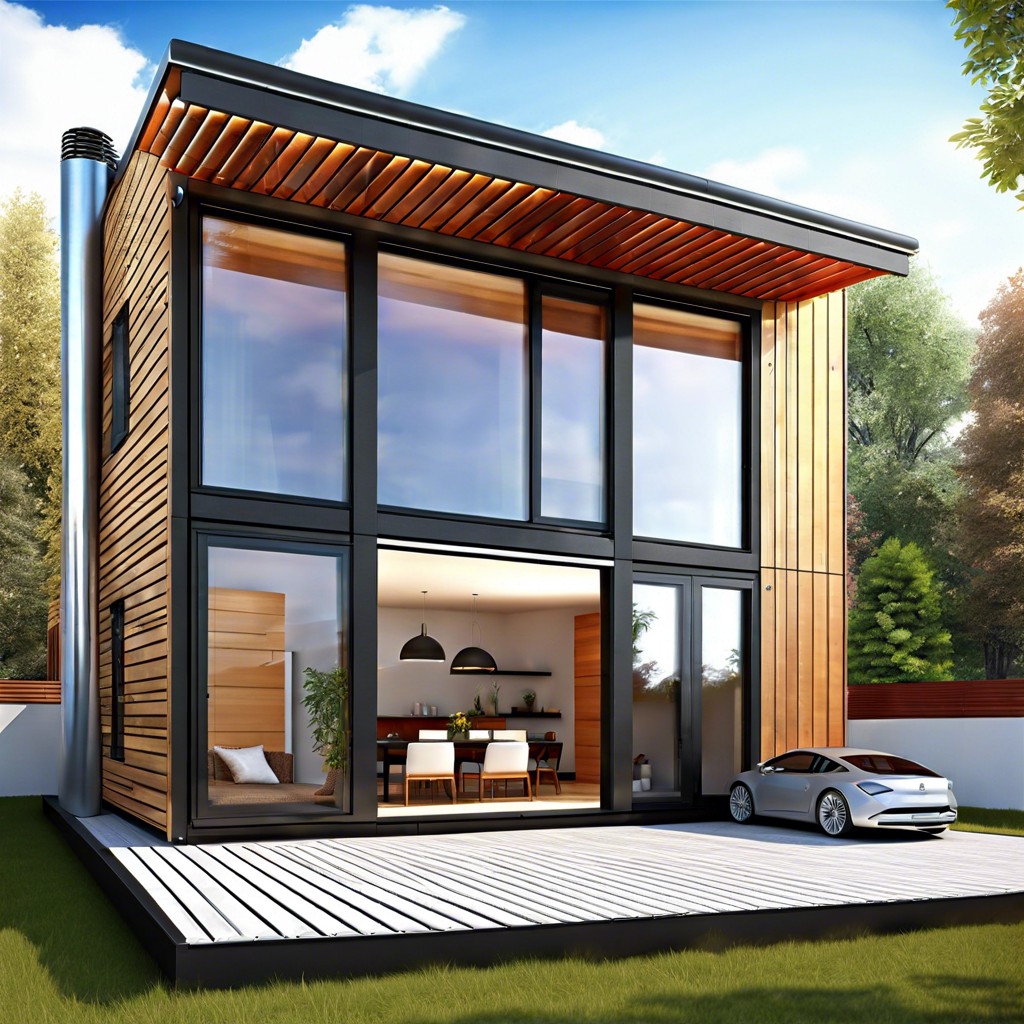
Roof ponds are reservoirs of water placed on rooftops to absorb and store solar energy. This stored heat can then be circulated to warm the home during cooler periods.
South-facing Greenhouses
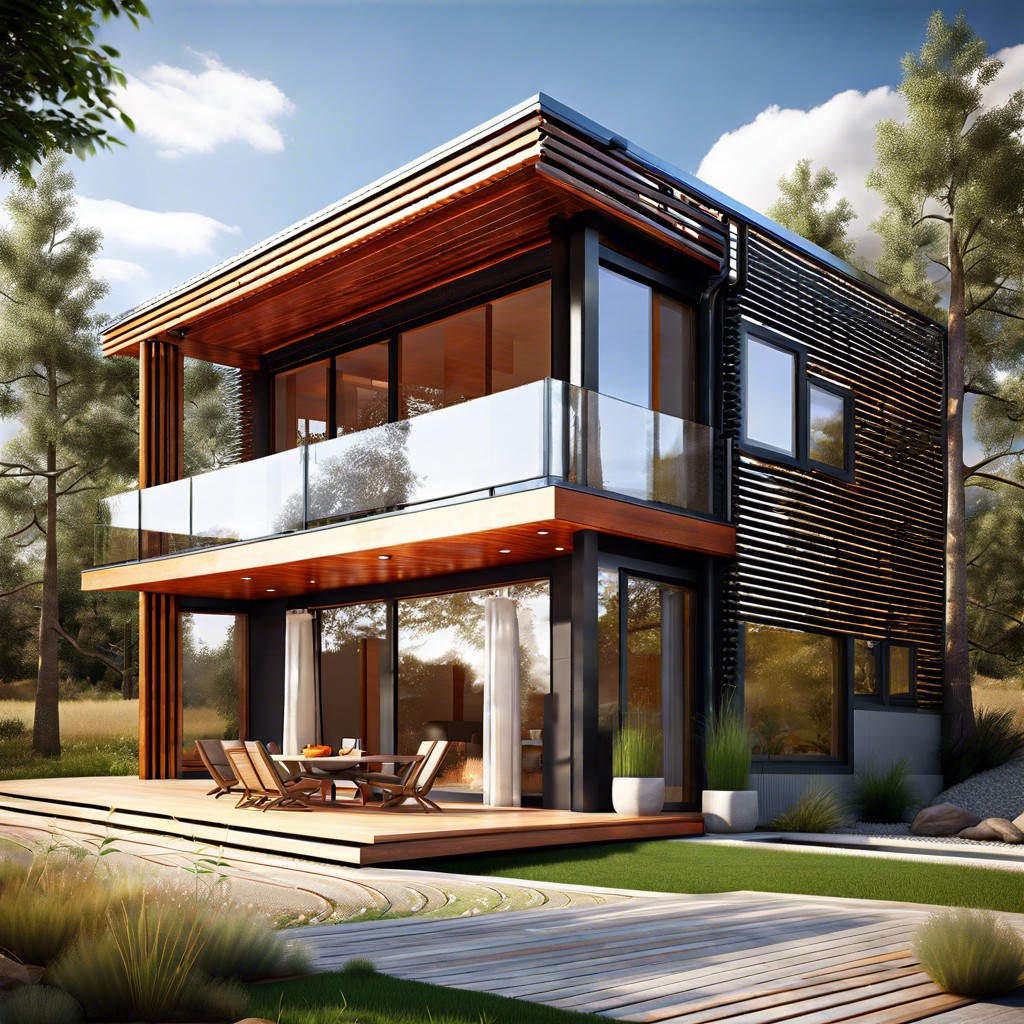
South-facing greenhouses utilize solar energy for heating and growing plants at the same time, providing a sustainable solution for warmer indoor spaces. They maximize sunlight exposure, capturing and storing heat efficiently for optimal energy use.
Reflective Light Shelves
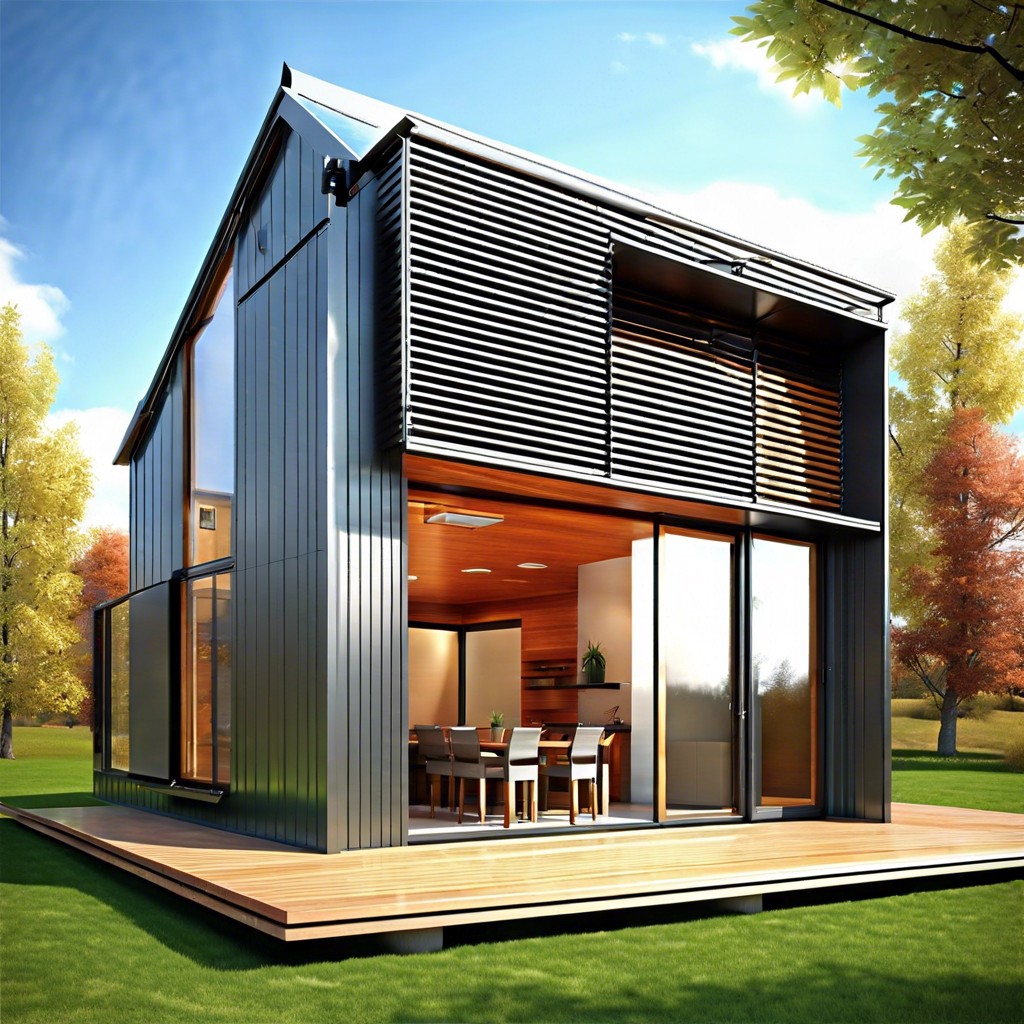
Reflective light shelves bounce sunlight deeper into a room, maximizing solar heat gain. They’re like mirrors redirecting light to keep homes warm efficiently.
Earth Berming
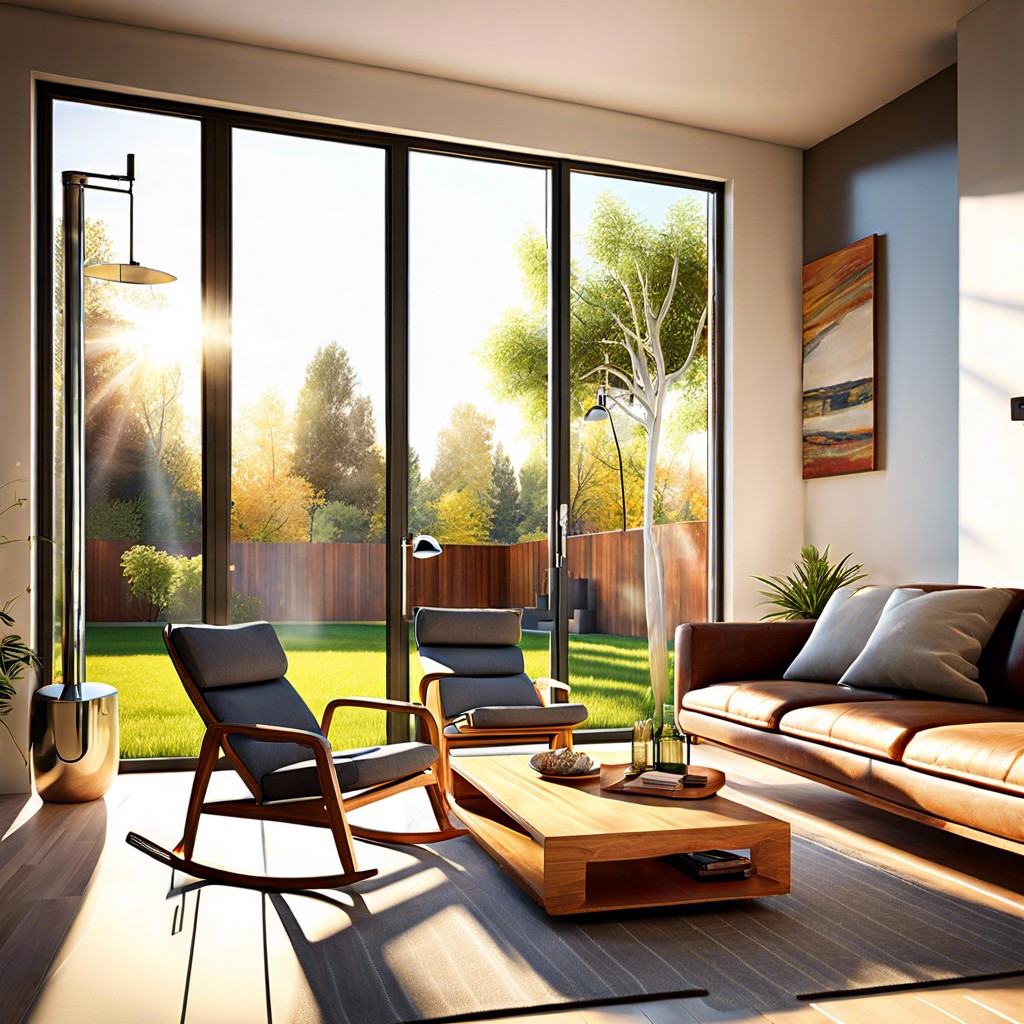
Earth berming involves using earth as insulation around a building. It helps regulate internal temperatures by leveraging the earth’s stable temperature.
Insulated Drapes
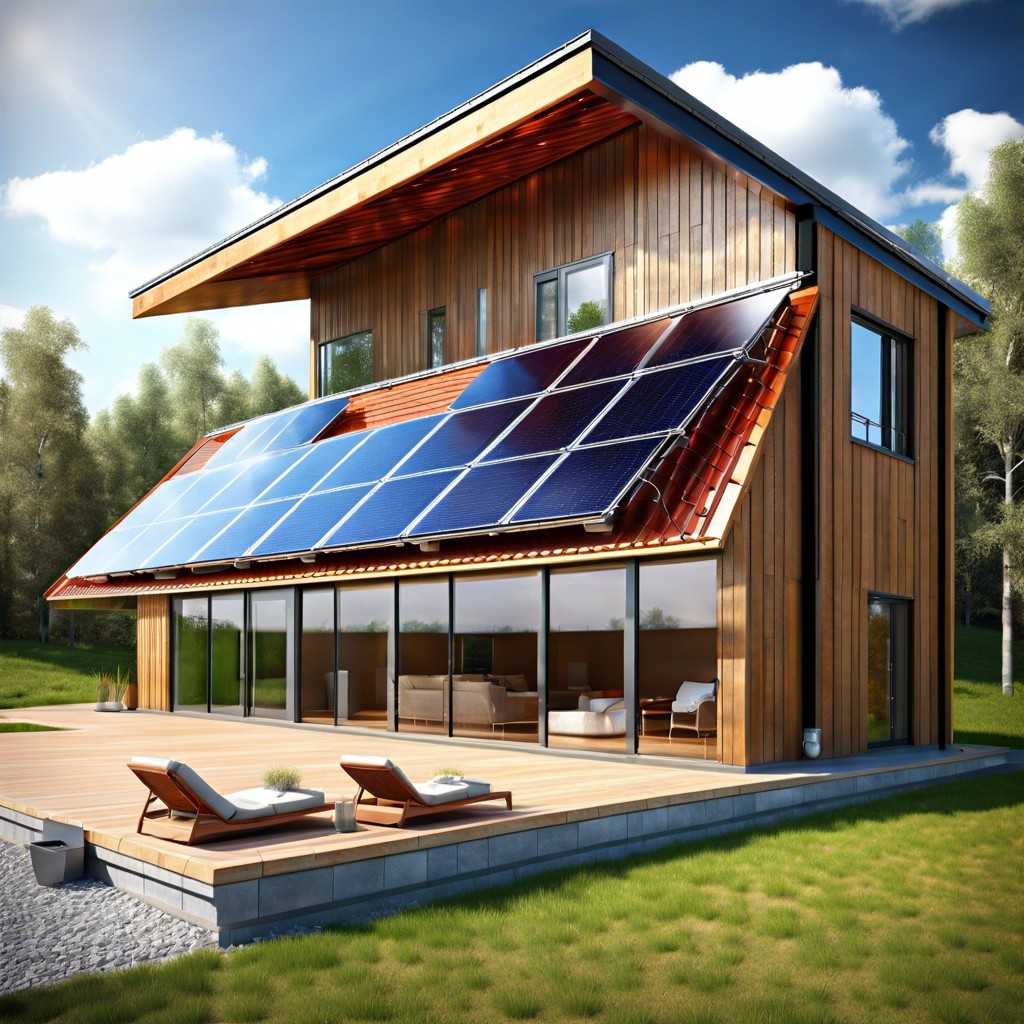
Insulated drapes help to prevent heat loss through windows in passive solar heating design. They act as a barrier to keep the warmth inside the home.
Green Roofs With Heat Retention
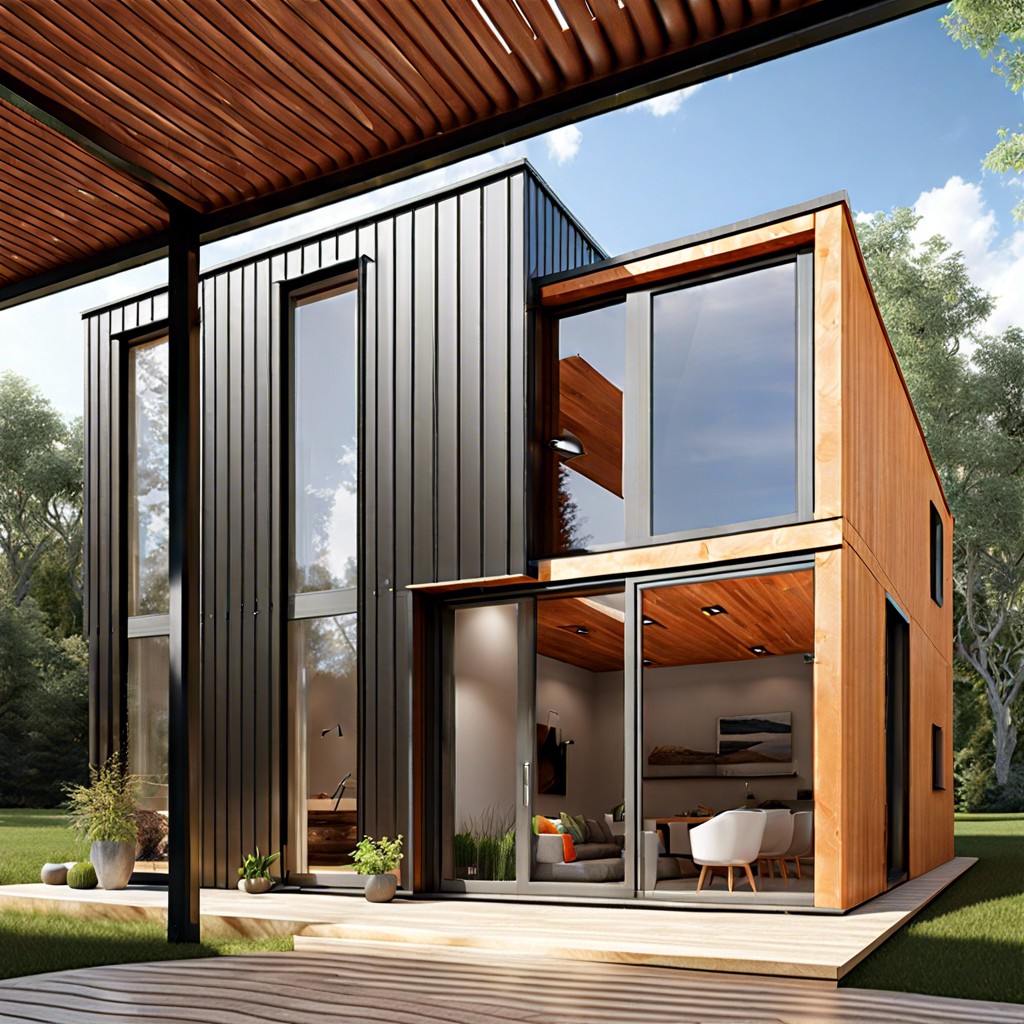
Green roofs with heat retention help to keep homes warm in winter and cool in summer by absorbing and storing heat from the sun to regulate indoor temperatures effectively. This innovative solution provides energy savings and increased comfort for homeowners.
Solar Ventilation Preheaters
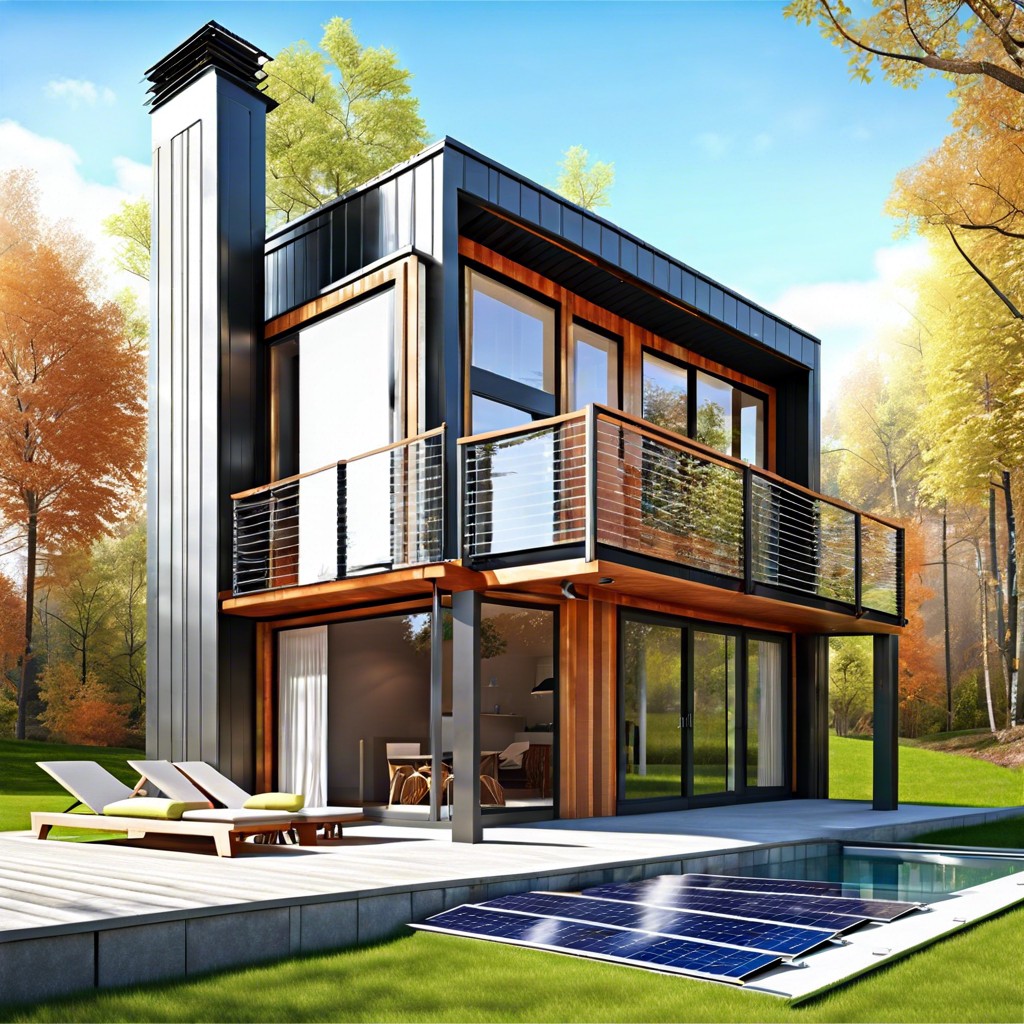
Solar ventilation preheaters make use of sunlight to warm incoming ventilation air. They are energy-efficient and environmentally friendly solutions for heating homes.
Table of Contents


